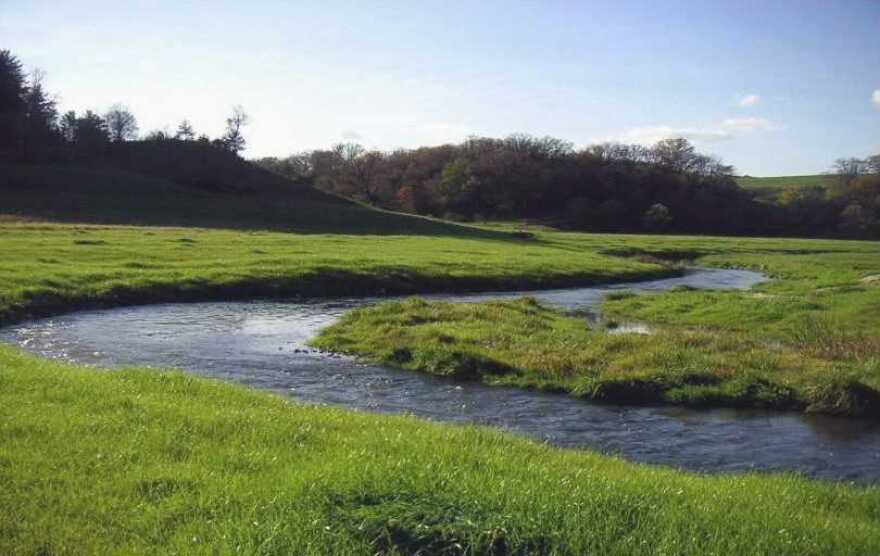The Environmental Protection Agency laid out a proposed rule Tuesday that it says ends confusion about waterways that fall under federal clean water protection. But critics say the measure would strip streams and wetlands of needed protections.
Debate over how deep U.S. water regulations should wade isn't new. The most recent clash came when the Obama administration spearheaded something called the Waters of the United States.
READ: Trump EPA Proposes Big Changes To Federal Water Protections
Under the rule, land use is regulated near water systems and property owners must apply for a permit before being allowed to spread pesticides that might run off and pollute those water bodies.
The EPA’s acting Administrator Andrew Wheeler says the new rules would strike the right balance. Government, he says, has a responsibility to protect the people, but not run their lives.
“When President Trump took office, he immediately began a process to remove and replace undo regulatory burdens that stifle American innovation and economic development. At the top of this list was the Obama administration’s 2015 Waters of The United States definition,” Wheller says.
What will remain under federal protection, Wheeler says, "Traditional navigable waters, tributaries to those navigable waters. Certain ditches such as those used for navigation. Certain lakes and ponds, impoundments and wetlands that are adjacent to all of the above.”
Wheeler says the plan also clearly defines what’s not federally regulated, including, “most roadside or farm ditches. A ditch that a farmer dug on his or her property would not be a water of the U.S. Prior converted cropland would also be excluded.”
People representing farmers, homebuilders and manufacturers joined the lawmakers and EPA officials in applauding the proposed rule change.
But criticism quickly followed.
Mike Kuhr of Wisconsin Trout Unlimited says he wants future generations to have access to clean water —whether they farm, work in a factory or love to fish.

“Here in Wisconsin, we’re home to 13,000 miles of trout streams. We’ve got about 5 million acres of wetland, about 1 million of those are considered isolated, which means … they’re not connected via surface water, they’re only connected via groundwater, underground,” he says.
Kuhr says isolated wetlands protection would go away under the proposed rule. “If you’re going to try to work with the Clean Water Act as it’s intended — to clean up our water for all citizens of this country to use — those ephemeral streams and those isolated wetlands that are connected under the ground through the groundwater, I think those deserve protection as well,” he says.
Kuhr says Trout Unlimited has been working with communities, especially farmers, to restore stream systems. He fears such projects might come undone if the EPA rule is adopted.
“One that comes to mind is the Blue River in Grant County ... We’ve done miles and miles of restoration work on this watershed ... people come from miles away to fish it because it’s so good,” Kuhr adds, “And that’s just one example. A lot of that could be in jeopardy if you go back to allowing all of this pollution to run back into our waterways.”
The EPA proposal will be published in the Federal Register. Once it's on the register, anyone concerned about the change has 60 days to comment.
Have an environmental question you'd like WUWM's Susan Bence to investigate? Submit below.
_




